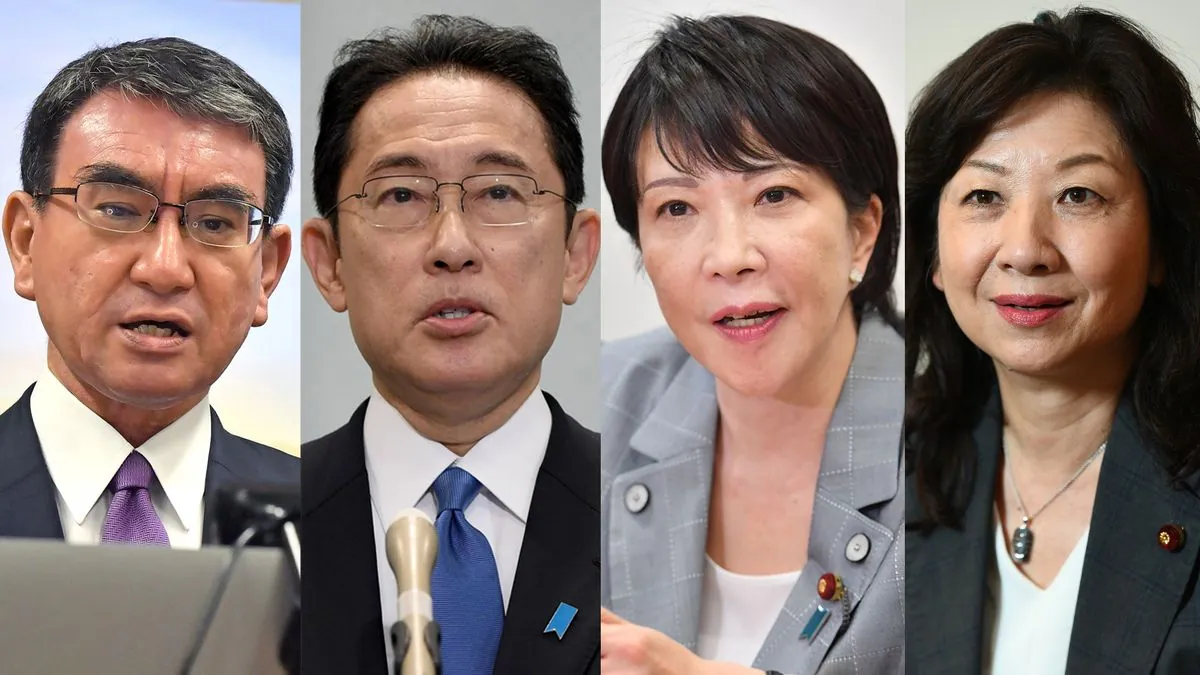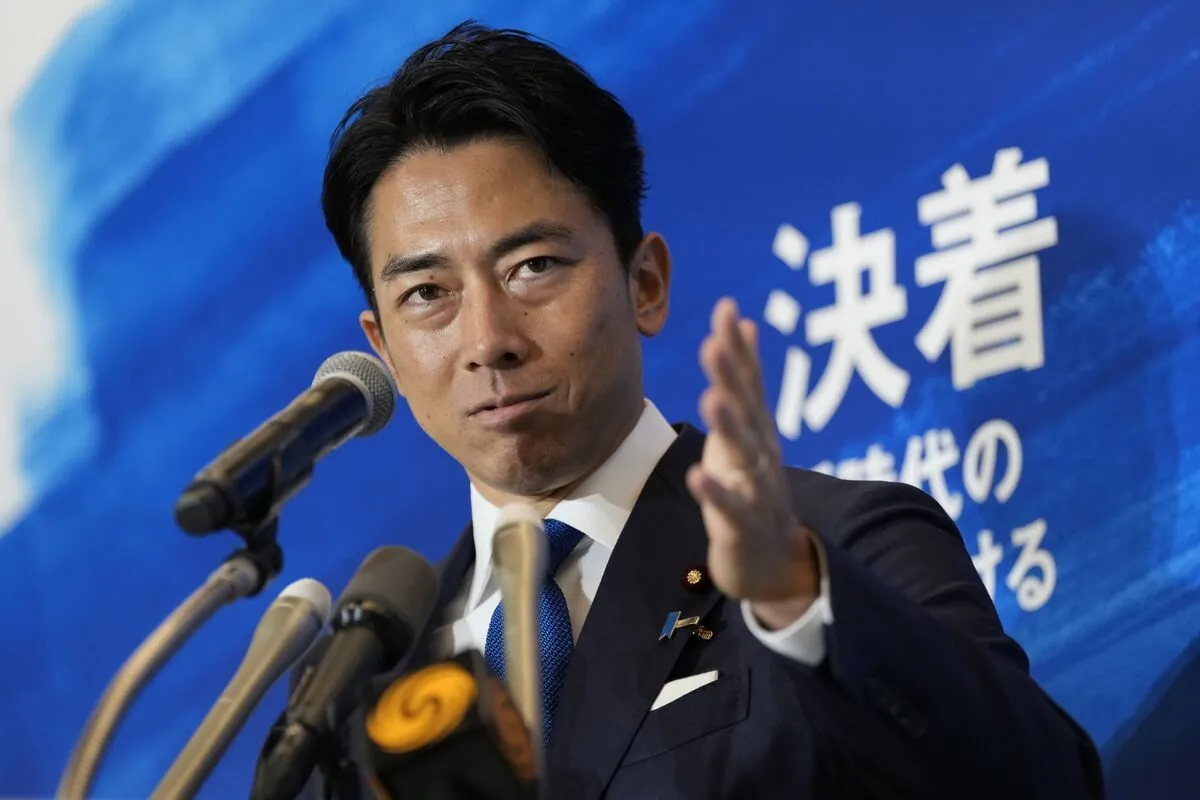Japan's LDP Leadership Race: Implications for US-Japan Relations
Japan's LDP prepares to elect a new leader, with potential impacts on US ties. Candidates Koizumi, Ishiba, and Takaichi offer differing approaches to foreign policy and regional relations.

As Japan's Liberal Democratic Party (LDP) prepares to select a new leader on September 29, 2024, the outcome could significantly influence the nation's foreign policy and its relationships with key allies. The election, occurring approximately one year after the article's original publication, comes at a crucial juncture for Japan's diplomatic landscape.
Three primary contenders have emerged in this closely watched race: Shinjiro Koizumi, Shigeru Ishiba, and Sanae Takaichi. Each candidate brings a unique perspective to the table, potentially reshaping Japan's approach to international relations.
Shinjiro Koizumi, at 44 years old, represents a potential generational shift in Japanese politics. As the son of former Prime Minister Junichiro Koizumi, he carries the weight of a political dynasty. Koizumi's campaign has focused on change, yet his foreign policy stance aligns closely with the current administration's pro-US orientation.

In contrast, Shigeru Ishiba, 68, and Sanae Takaichi, 64, bring extensive experience to the race but advocate for policies that could potentially alter Japan's diplomatic course. Ishiba, participating in his fifth leadership election, has expressed interest in revising aspects of the US-Japan relationship. Takaichi, who could become Japan's first female prime minister if elected, has proposed actions that might strain relations with South Korea.
The election's timing is particularly significant given the evolving geopolitical landscape. Japan has been working to strengthen its alliance with the United States while simultaneously improving relations with South Korea, all in the face of an increasingly assertive China.
"Among the current top three candidates, Koizumi would probably be the most favourable if the U.S. had a say. He is young, and he doesn't have the governing experience and so the easiest path is to move forward with what's already working."
The LDP's decision will have far-reaching implications. Japan's defense budget, currently ranking ninth globally, is set to double, a policy unlikely to change regardless of the election's outcome. However, the approach to managing this increased military spending and its impact on regional dynamics may vary depending on the victor.
Ishiba has proposed creating an 'Asian NATO', a concept that has already faced skepticism from US officials. He has also suggested seeking more oversight over US military bases in Japan, which host the largest concentration of US forces overseas.
Takaichi's potential victory could complicate efforts to improve Japan-South Korea relations. Her stated intention to visit the controversial Yasukuni shrine, a practice Japanese leaders abandoned in 2013 due to international criticism, could reignite historical tensions.
The upcoming US presidential election in November 2024 adds another layer of complexity to Japan's foreign policy considerations. The potential for a change in US leadership could significantly impact the US-Japan alliance, particularly if it leads to increased pressure on allies to shoulder more of the financial burden for US protection.
As Japan navigates these challenging waters, the LDP's choice of leader will be crucial in determining the nation's path forward. The decision will not only shape Japan's domestic policies but also influence its role on the global stage and its relationships with key international partners.


































